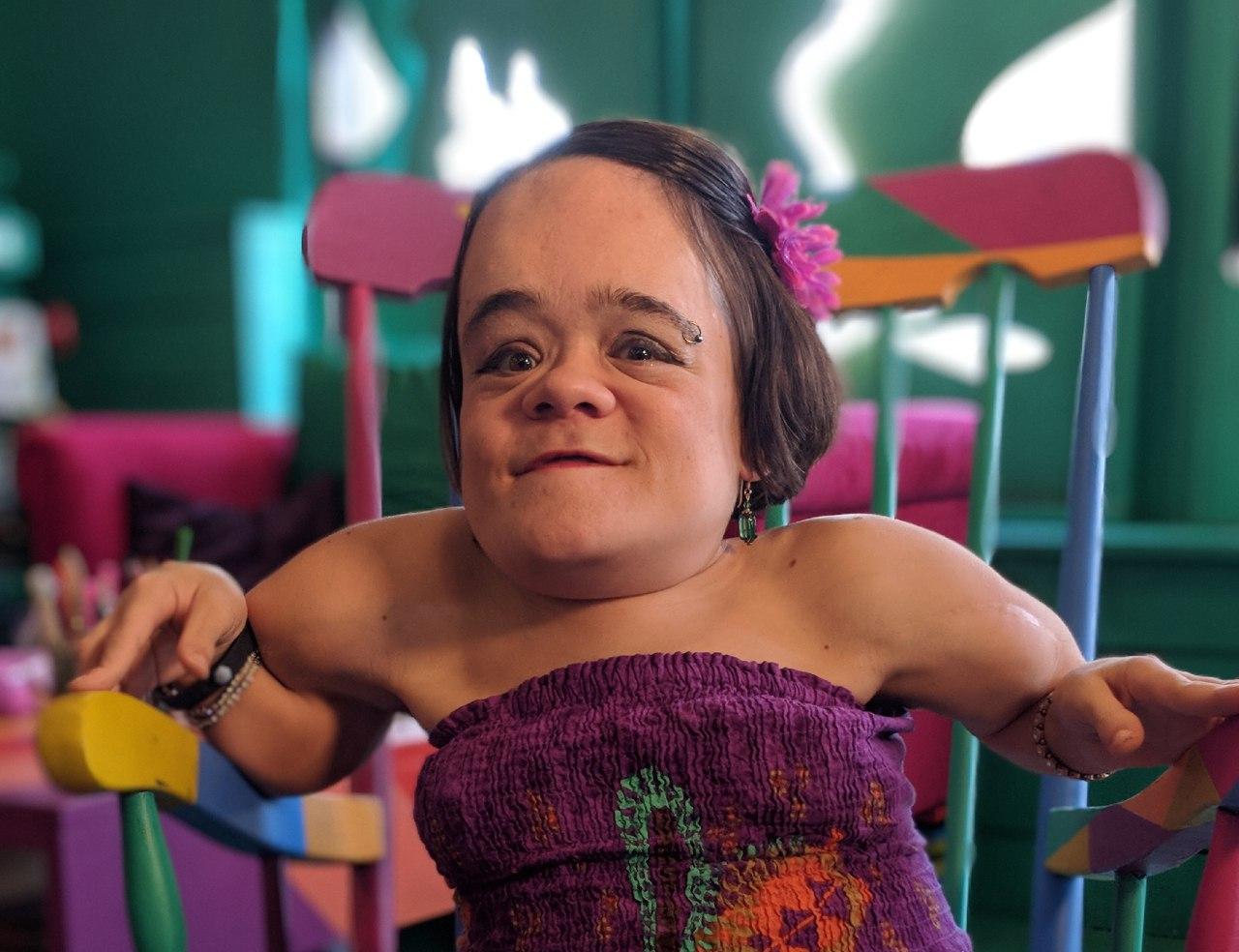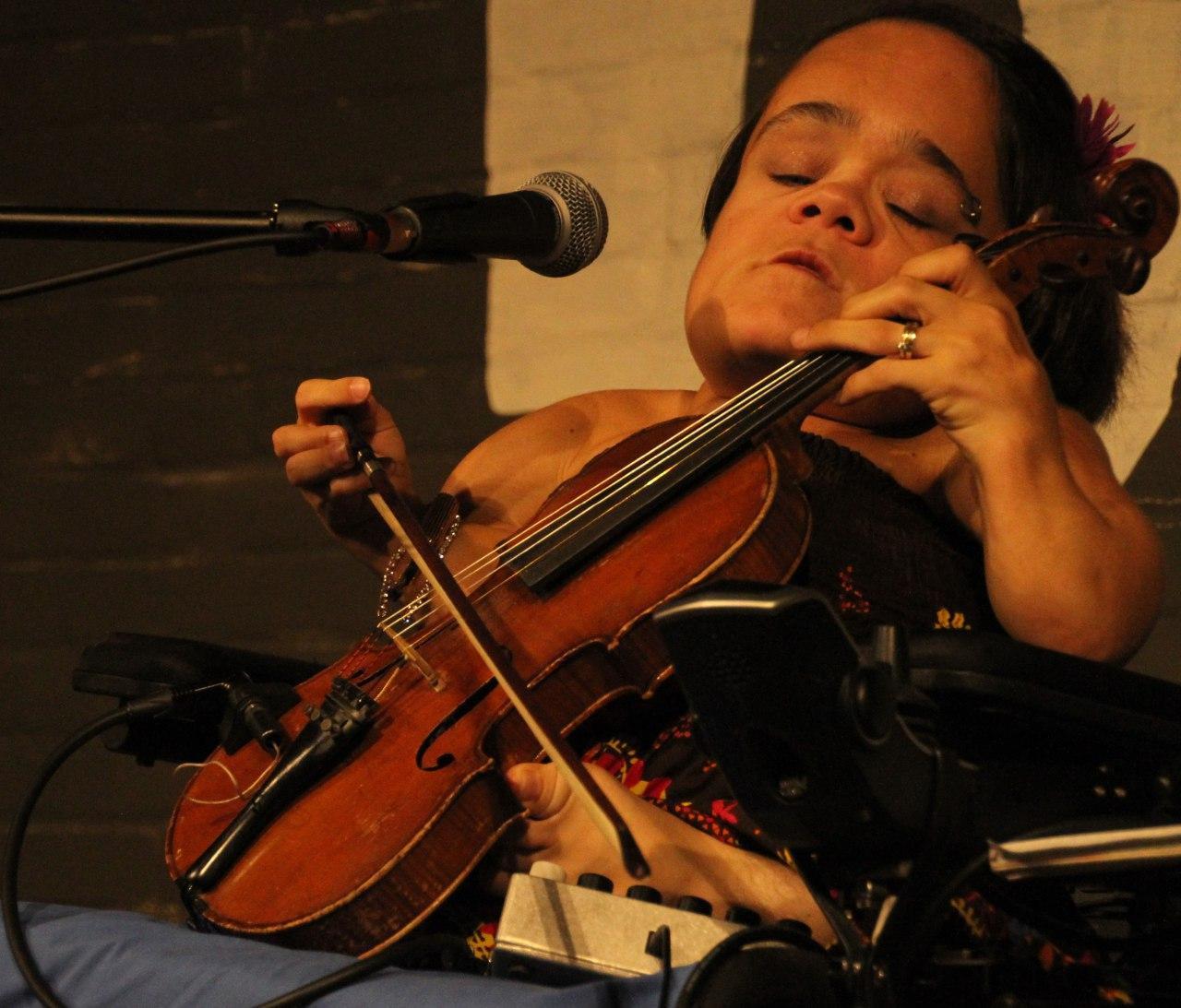Gaelynn Lea: Celebrating human diversity, love for music and freedom to be yourself
This interview with Gaelynn was very important to me, personally. I do love music, but I did not find the way to practice it consistently, creating limits for myself. Also, my dad has disability so the issues Gaelynn was talking about such employment difficulties, importance of support network around you, the need to feel valuable just the way you are - it is familiar to my family.
The motto of Mashuq media is “The power is within you”. Gaelynn, I believe you absolutely possess the power within you. What are the sources of this power?
I am a spiritual person and it is also a source of the power for me. Spirituality gives me longer term perspective for social change, even if I do not necessarily see all the results of the work that I do, then the next generations will. That gives me the sense of purpose to keep working on disability rights.
Music for me is more about connecting to the energy that is very invigorating.
The first word that comes into my mind when I see you and listen to your music is authentic. How to stay authentic and brave to be yourself?
It might be my parents or self-reflection, but I also realized that the beauty and sexuality standards that society puts on us - it is up to us to decide if we want to accept them or not. As long as I know I am doing my best to be a good person and I am not hurting anyone, I do not need to be a certain way.
This realization helped me see my whole life in the lense of freedom to decide. Freedom to choose your own life path rather than following the standards the society puts on us - they are more about keeping people consuming. We do not have to abide by them if we do not want to. It applies to everyone – people might think that people with disability do not have to care about being standard, but really, nobody does. We just agreed to these rules. I believe that there are ways in every culture to be who you are. To know that you have value even if you do not look a certain way or act a certain way .
Gaelynn, you are an award-winning musician, you have been practicing it since childhood. What is music for you?
Music does that for everyone and it does that for me. Aside from the connection and the fun and the energy of performing, music allows me to transcend to a different frame of mind. Violin is technical, it is easy to make it sound bad. You have to be focused while you are playing, so it takes your mind off of the daily concerns. You are very present when you play and that is something that is important to me.
You studied at the University of Minnesota and graduated with Political science degree. So how have you made that choice to follow music, rather than doing what you have studied for?
With music I just started playing for fun, it just brought me a lot of joy. I played all the time, and after the college I started playing in the bands in my local town. At first I was doing it just in the evenings, while I had a regular job. Eventually I realized that I really wanted to do music for a living. I started teaching children and adults how to play violin during the day and I performed in the evenings. When I won NPR Tiny desk contest in 2016 I gained nationwide recognition, I never had it before. So I thought if I wanted to try touring, this would be the time to do it.
Originally I was not planning to do music for a living, but doors kept opening. What is nice is that I do talk about disability rights, I feel that I am using my political science background. I like being able to combine the two, because they are both my passions.
One of the things you advocate is finding inner freedom. What is inner freedom for you and how did you reach it?
In America there is a lot of emphasis on success and progress.
Recently there was a concert at a college that I played before lockdown started. The lady brought her daughter who has developmental disabilities to this concert. The girl got agitated during one of the sing-along songs called Bird song. The staff was trying to figure out if she should leave but luckily they were able to get her to calm down and she stayed for the rest of the performance. I met the girl after the concert and she started crying. Her mom said that they listen to my music every day and the girl started playing violin because she loved my music. All of a sudden it dawned on me, why she was agitated during the concert. I asked her: ‘oh were you really excited during the concert because you love that Bird song and that is why you were moving around?’ The girl nodded because she was not even able to talk.
People assume if you cannot speak or you have developmental disability, that you do not have a rich inner life, but that is not true at all. She has as deep level of emotions as I do even if she cannot speak about them. Her inner life is just as deep and just as important as mine. She is a person who really likes music and gets excited when she is around it, like anyone else. In our society we end up dismissing people like that and I think it is a real tragedy, our lens is very narrow.
I play for people with disabilities as often as I can, so I see that the response to the music from them is the same as the response from the able bodied audience.
I’ve heard that beautiful story you shared about when your grandpa was passing away he was singing ‘Amazing grace’ along as you played. There is no questions that music has an impact on people. What impact do you hope to make with your music?
I want to achieve more direct result with my advocacy. I would like to see that arts become more diverse and accessible to people with disabilities. This is something I work on hard spreading the message that inclusion is very important, not only in arts but in every area of life.
What from your perspective are the main accessibility concerns in music?
On the broader sense, it is hard to become a musician if nobody teaches you. I got very lucky that I did have a teacher who was willing to adapt the instrument with me. I met a lot of people whose teachers did not suggest that and who were unable to learn the instrument they wanted because nobody would teach them. I think that this is what we need to change all over the world. Being willing to teach kids with disabilities and adapt the technique. Letting go the idea that it has to look a certain way or technique has to be uniform. Because it leaves a lot of people out. For example, I play very differently, it looks different but it sounds fine.
The last thing that I want to mention is the way the press talks about disabilities is often negative. The stories are usually just about their disabilities and not about their music.
Do you feel that it is being improved, throughout your life and career?
Even in the 4 years that I have been touring things have changed for the better. I talk a lot about it so venues decide to build ramps before my shows so that i get on stage. Then we also talk about the ways they can make their venues more accessible and they are open to listening because I was so vocal about it. I would like to see other artists, including able-bodied ones also say that ‘I am not going to play at the venue that is not accessible’. This is what I’ve done. It would be more powerful if there is more people doing that.
United States wasn't very accessible until 70-80-90s. It only takes one very committed generation to change things. There is the generation of the 70s that started to fight for their own civil rights. They were disabled themselves, so they were self-advocating. It is important to have these conversations in Kazakhstan so that this generation can help impact next generation.
Gaelynn, during the press-briefing you mentioned that the main issues in inclusivity are around employment now. What are from your perspective the first and the effective steps for us as a society to take to start the process of inclusivity in employment?
In USA people with disabilities have buying power, as they have certain support from the government. They are 20% of the population. They need to be included in the market, earn money, pay taxes, contribute to the programs in the society. We all benefit if all of us can contribute. It is a gain for the economy if we start employing people with disabilities.
Which advice would you give to people with special needs?
Do not give up advocating peacefully for change in your city and in your country, and see it from the long-term battle of disability rights rather than your individual goal to fix everything. You can definitely improve the world for the next generation.
What is your ultimate vision for people with disabilities in the society?
Eventually, that is my vision – that people do not have to keep defending their worth and seen valuable as they are. I do believe that we can live in a world where everyone’s valued just for who they are. This applies to any other human rights movement, like women rights or minority rights.
What resonated with me the most is what you have said about the diversity of human experience: disability is not negative or positive, it is a part of human experience. Could you please share a message for our readers to reinforce this message.


